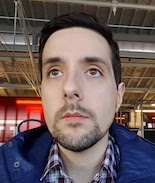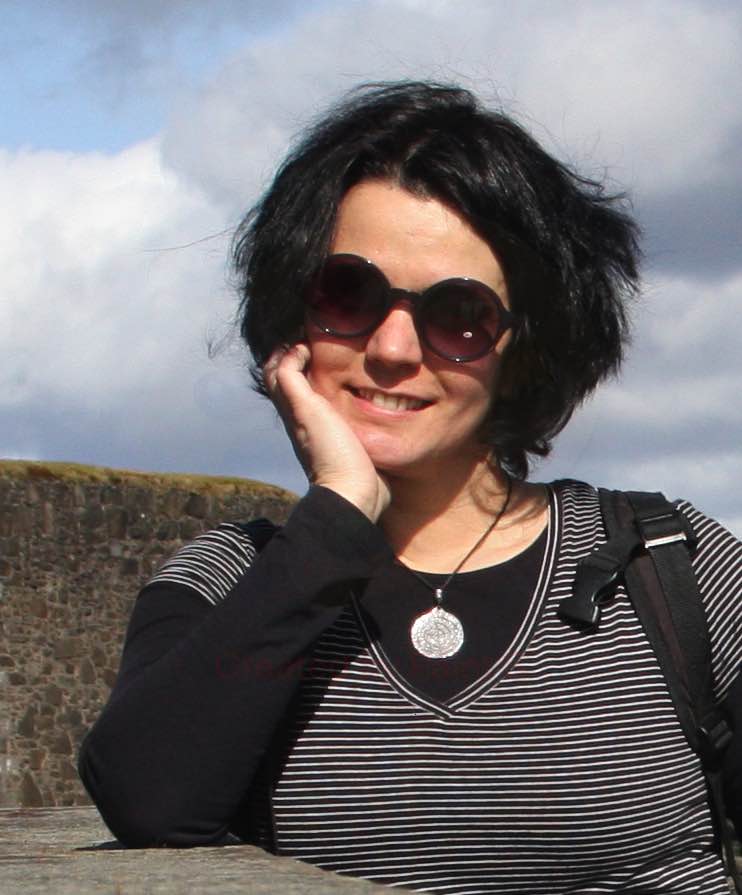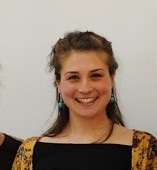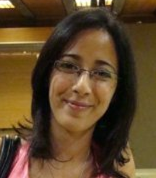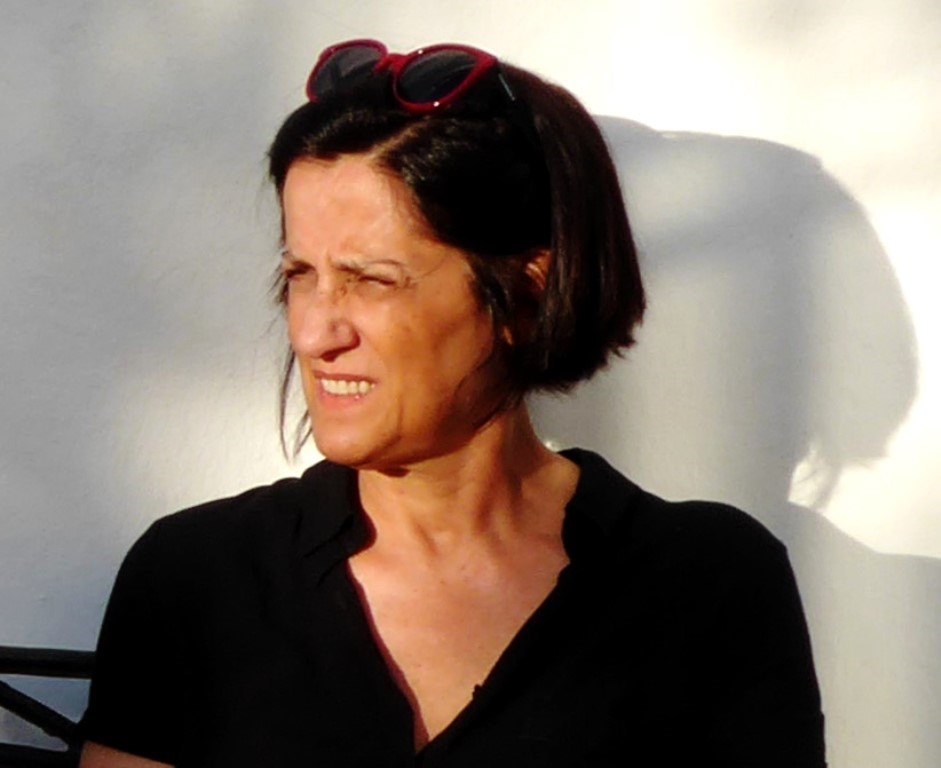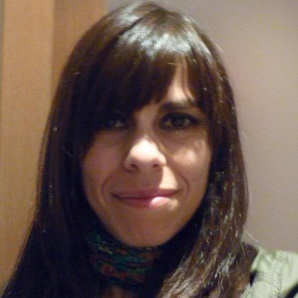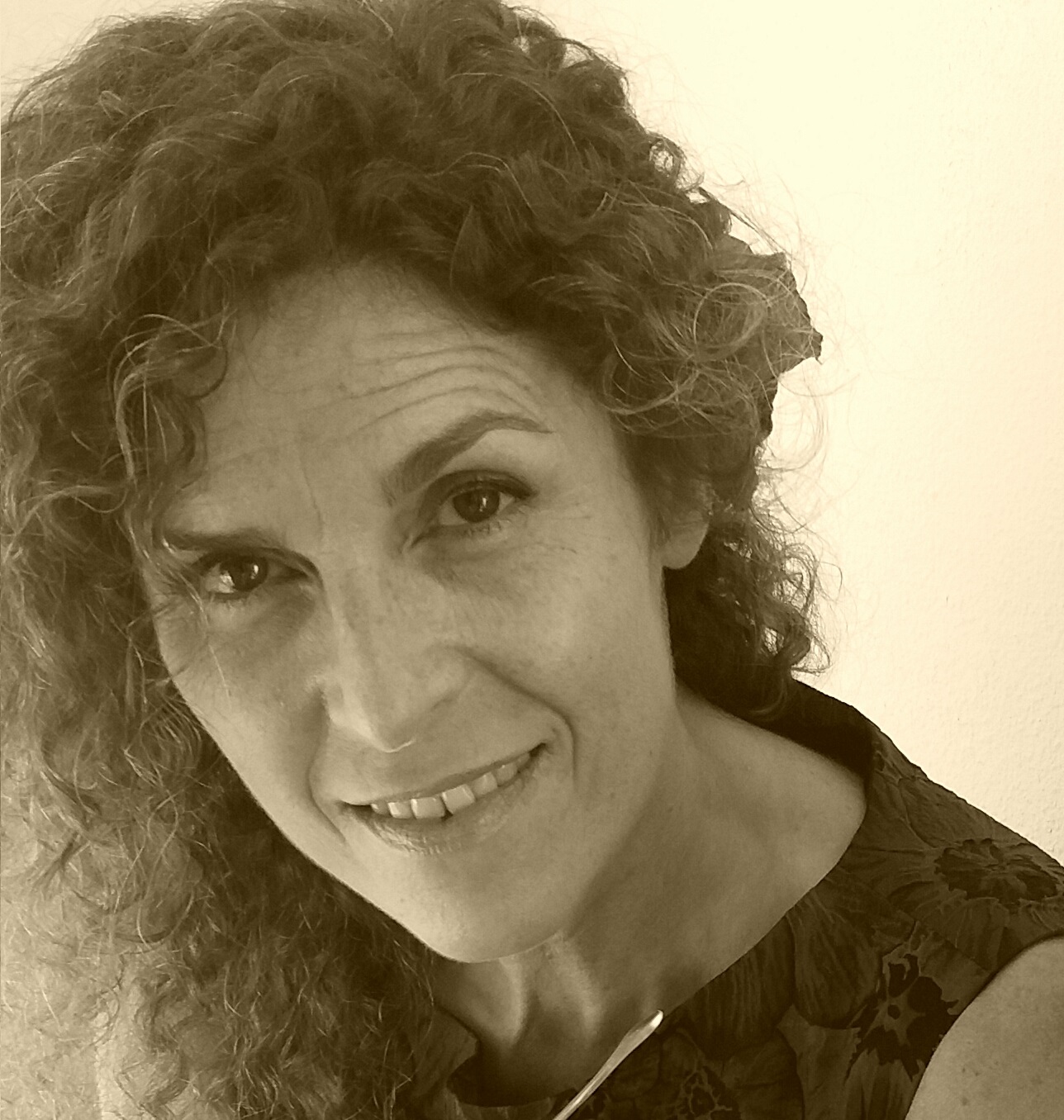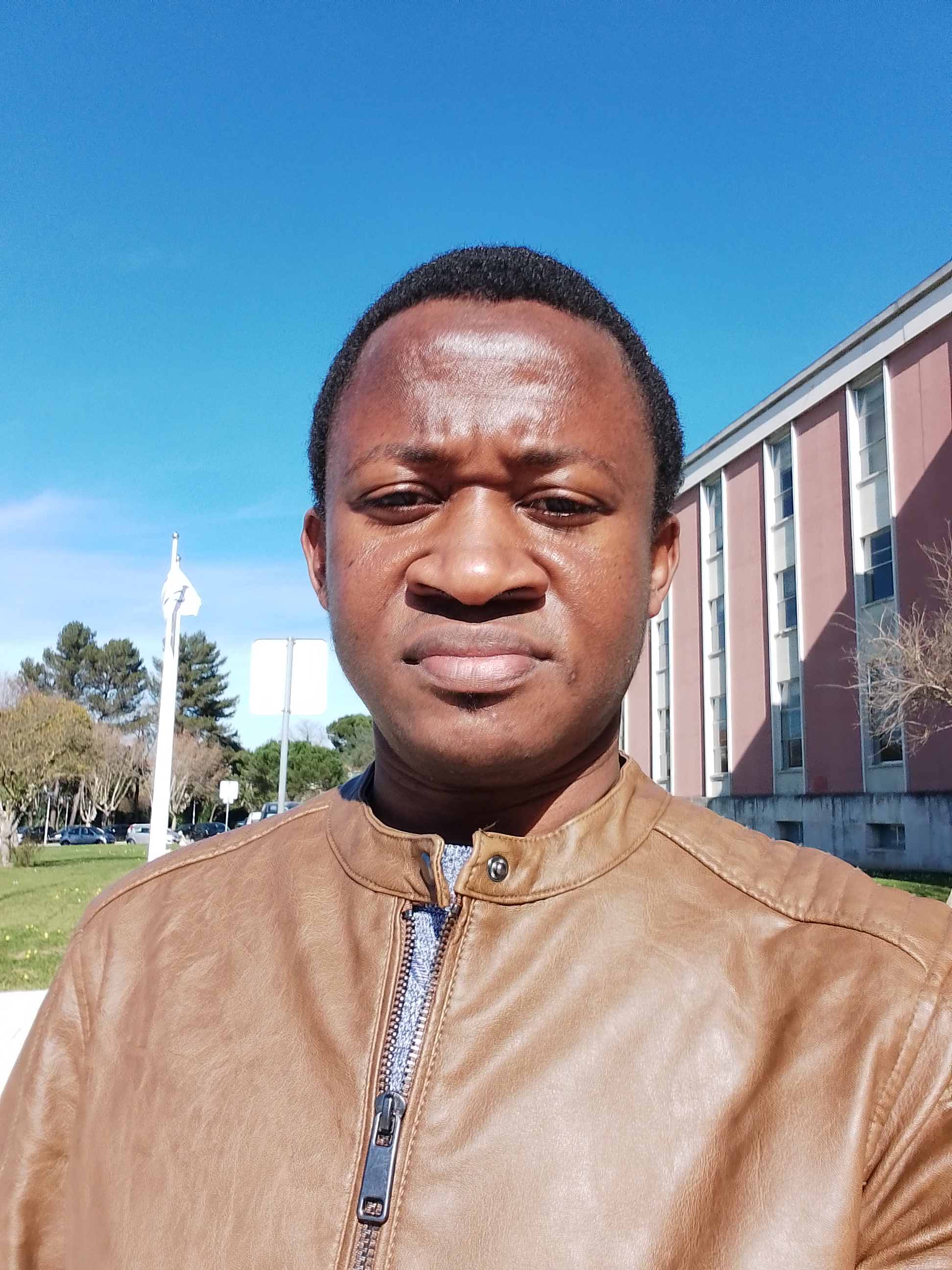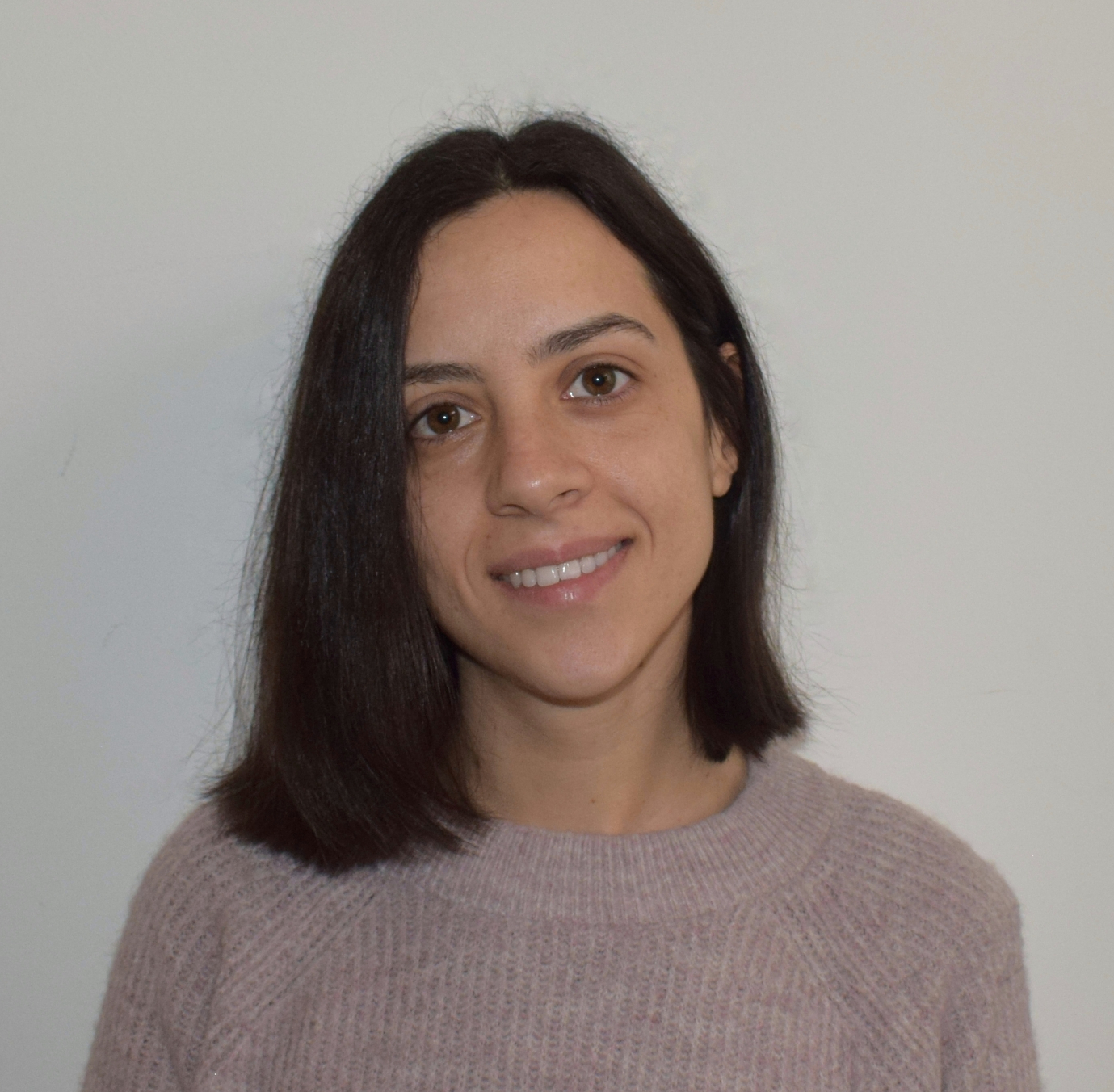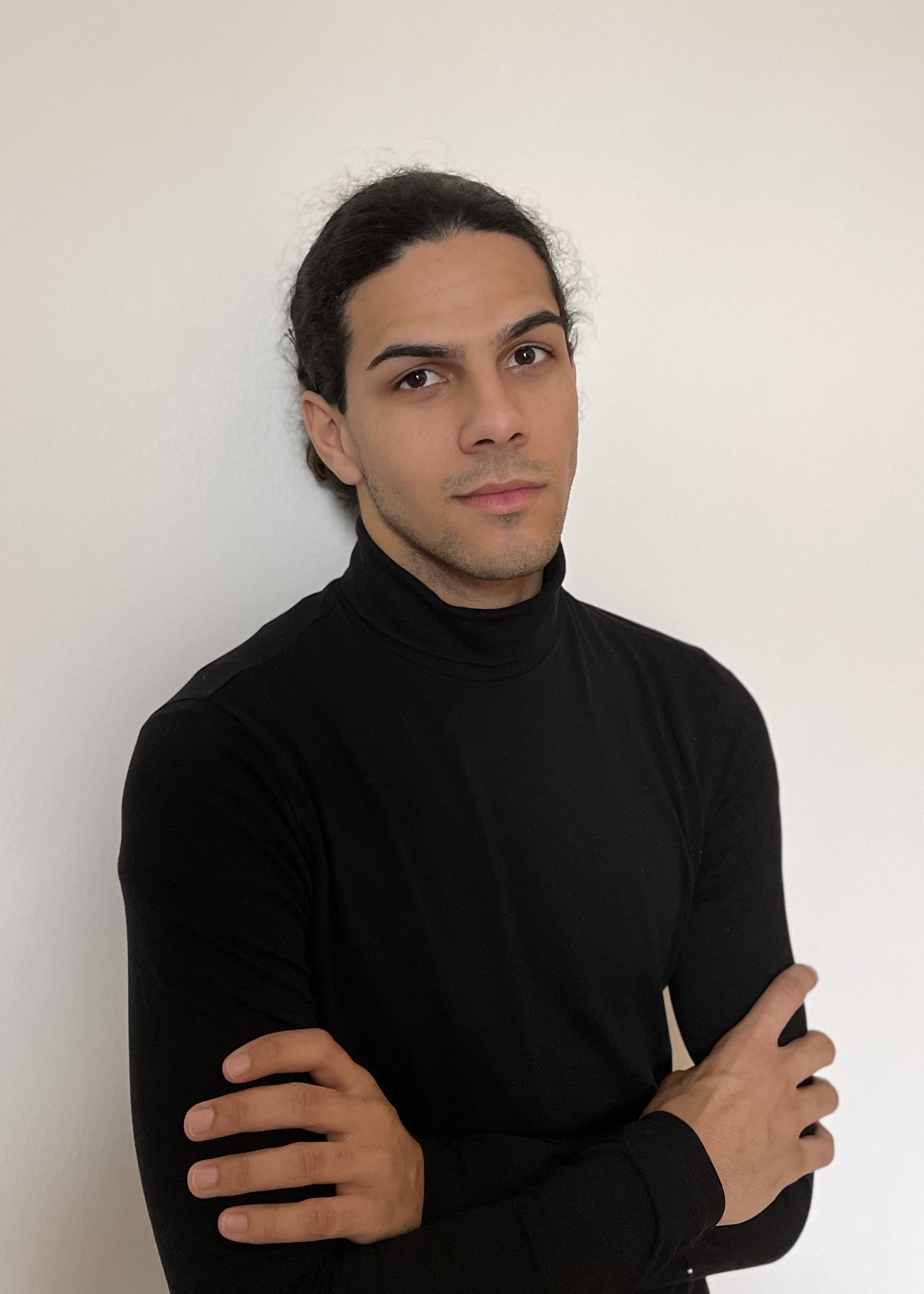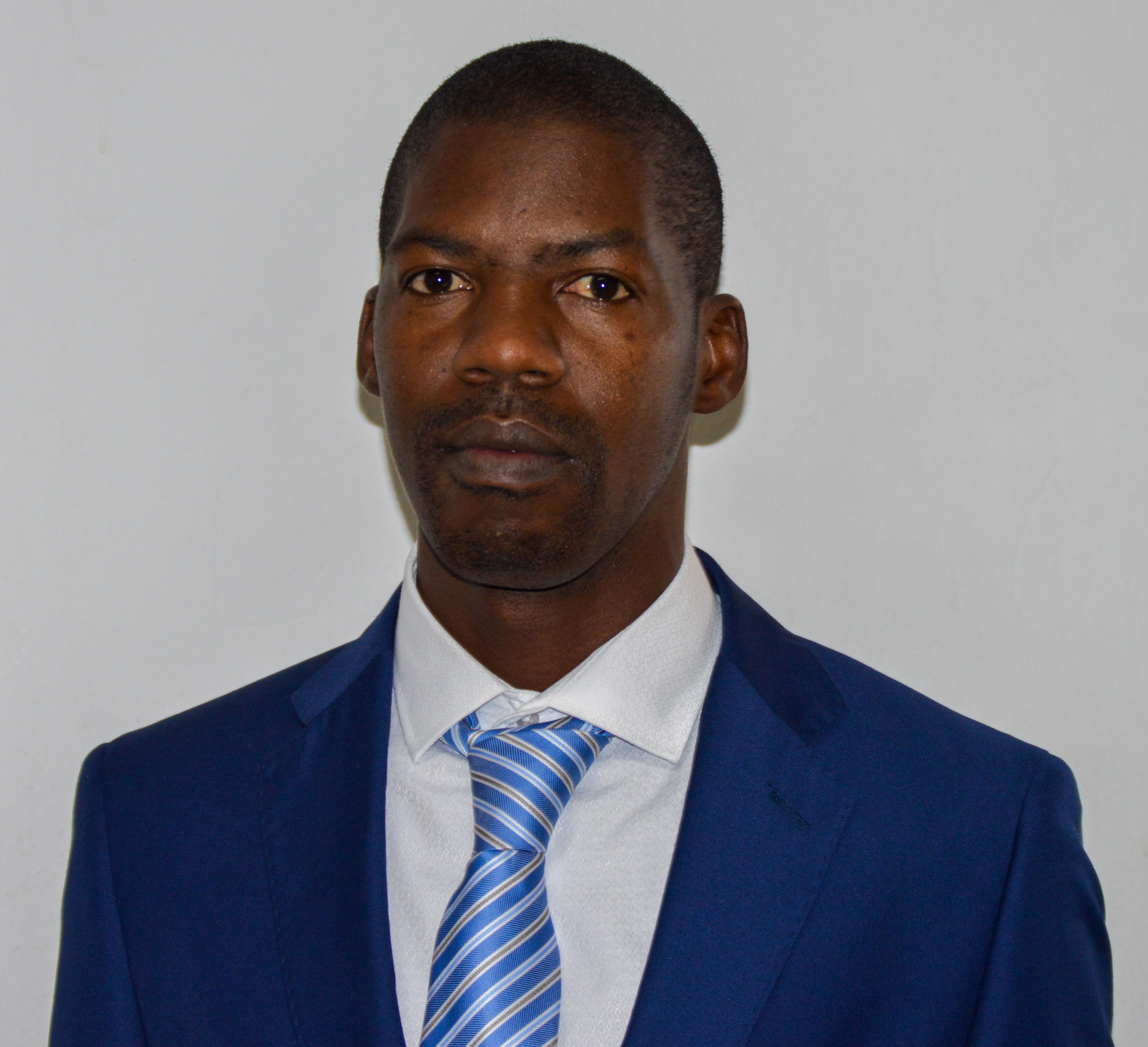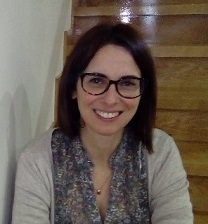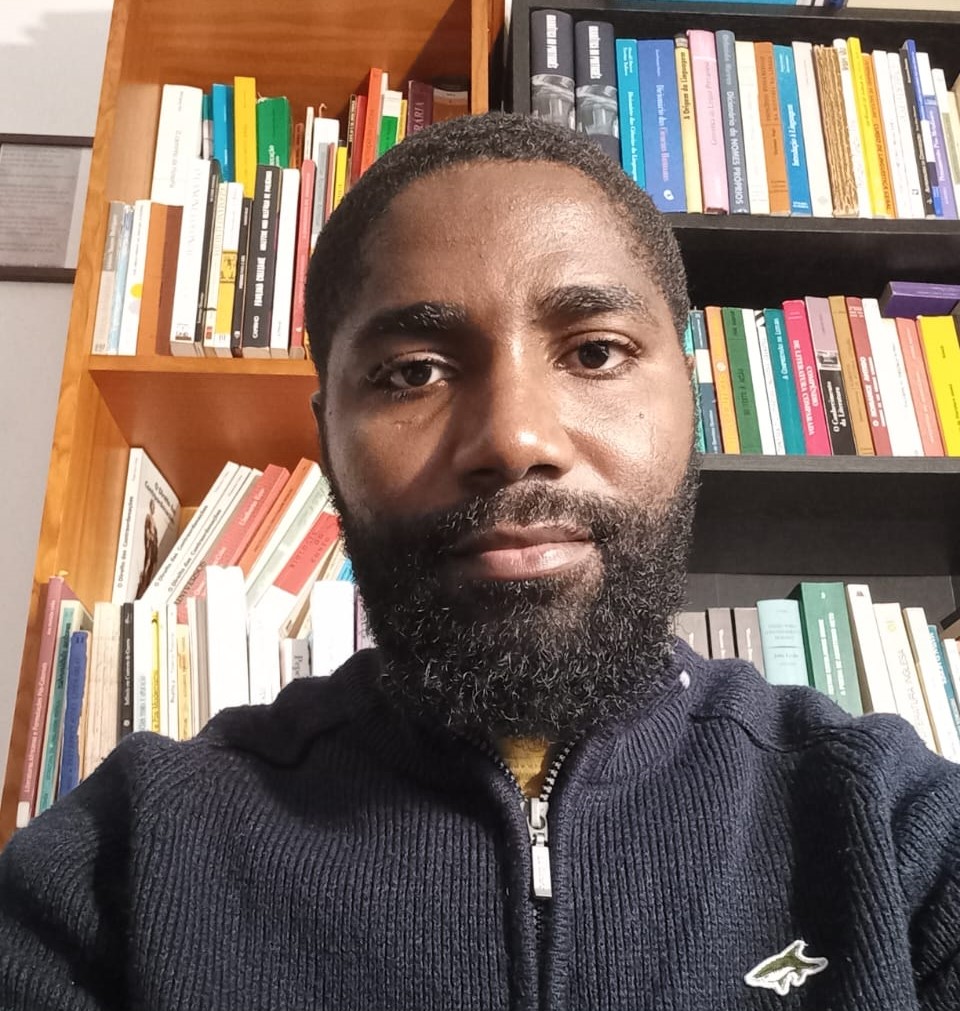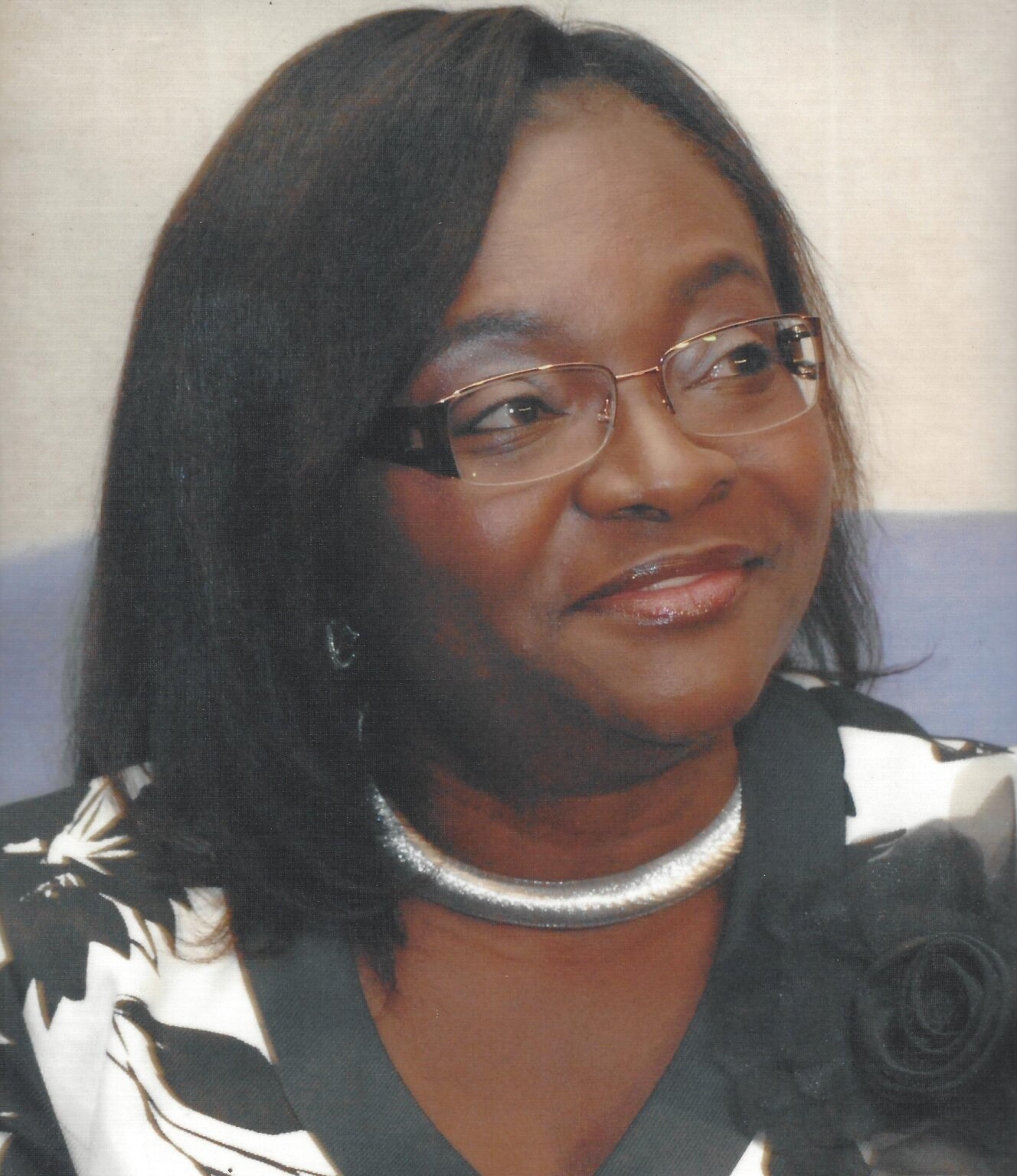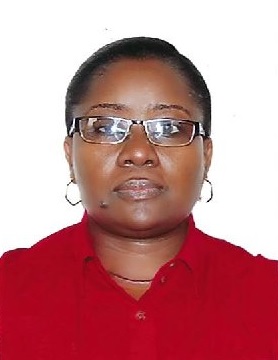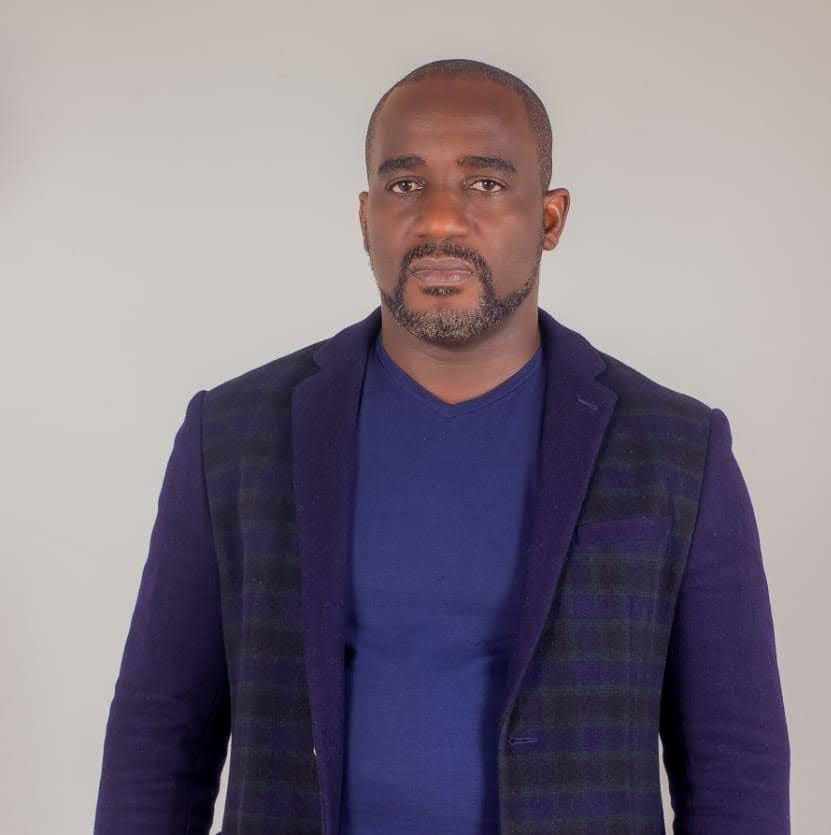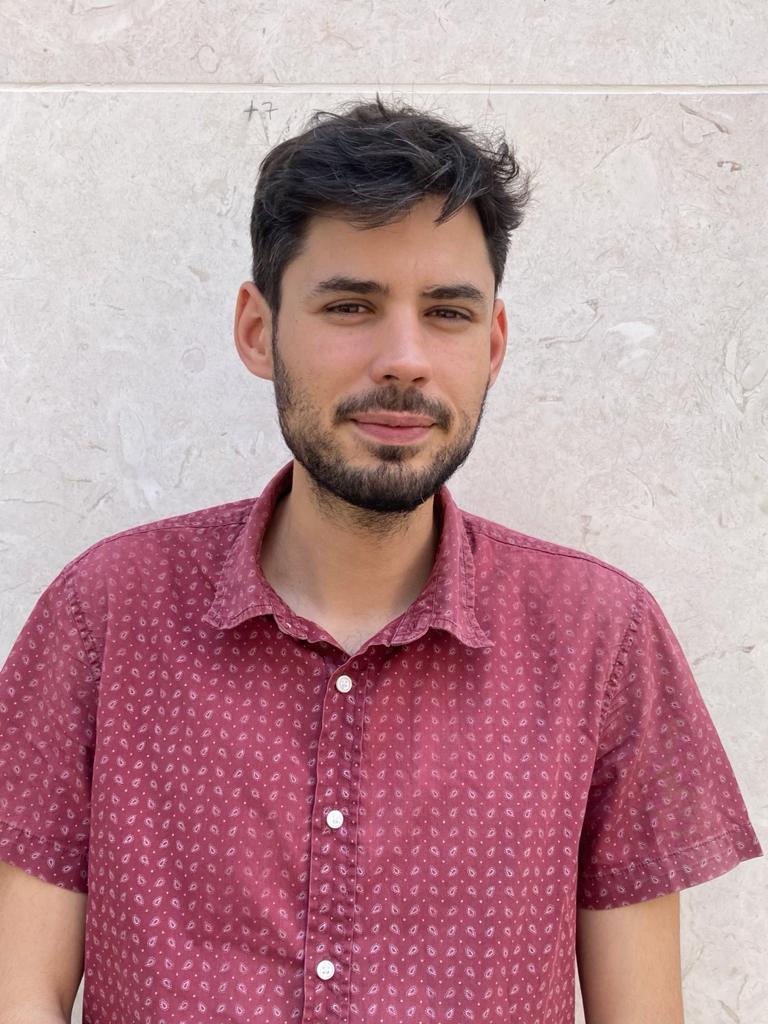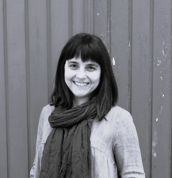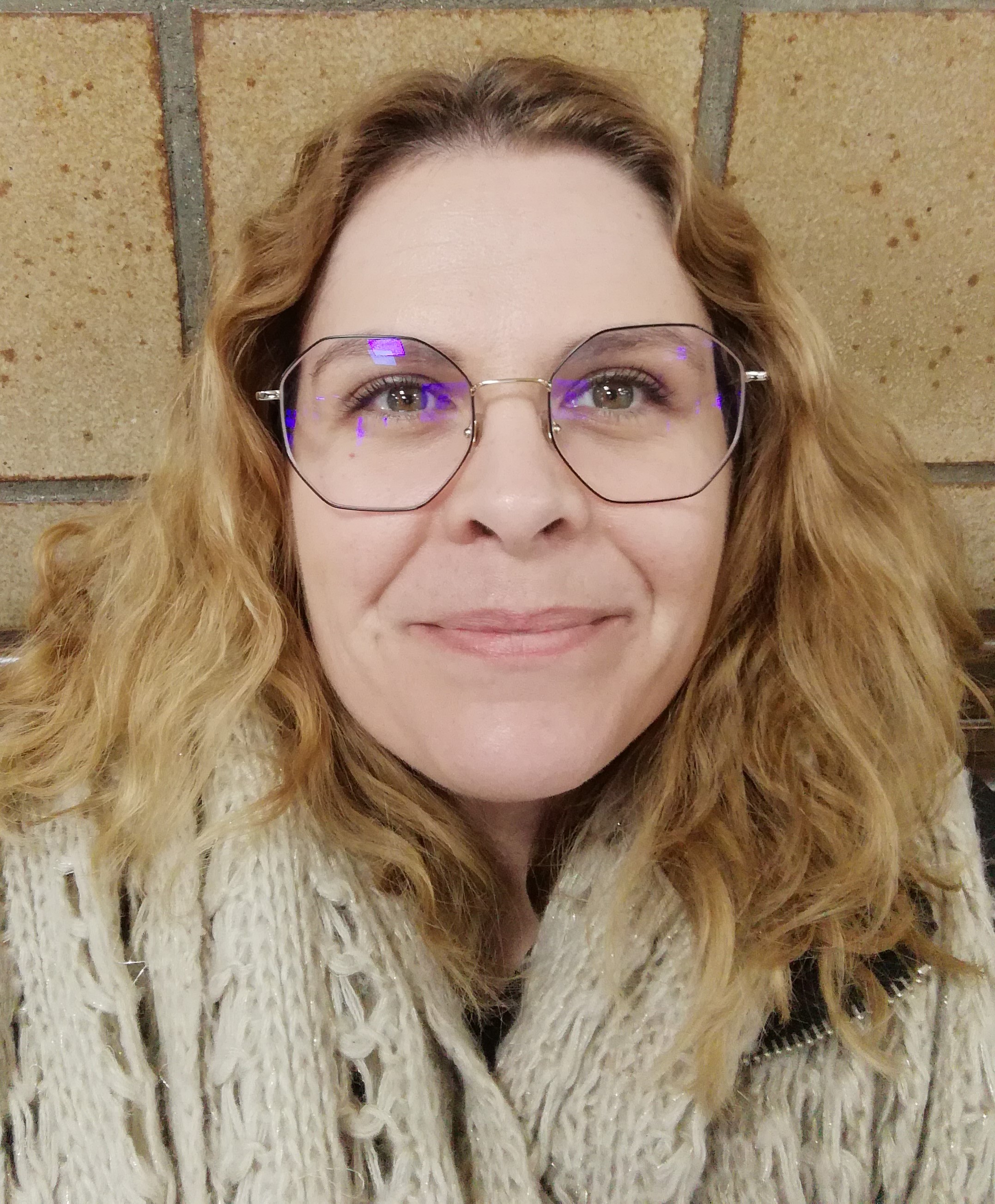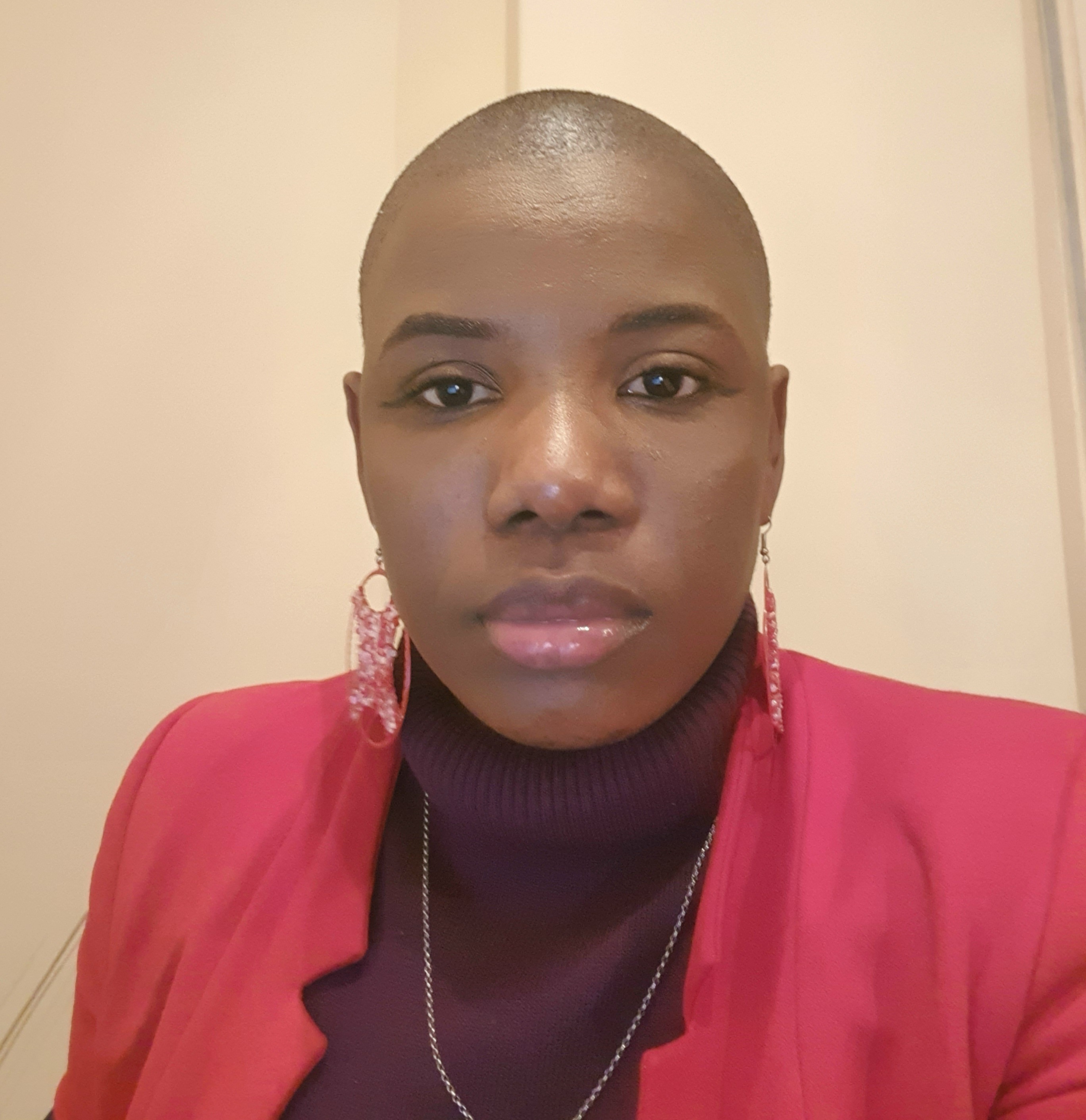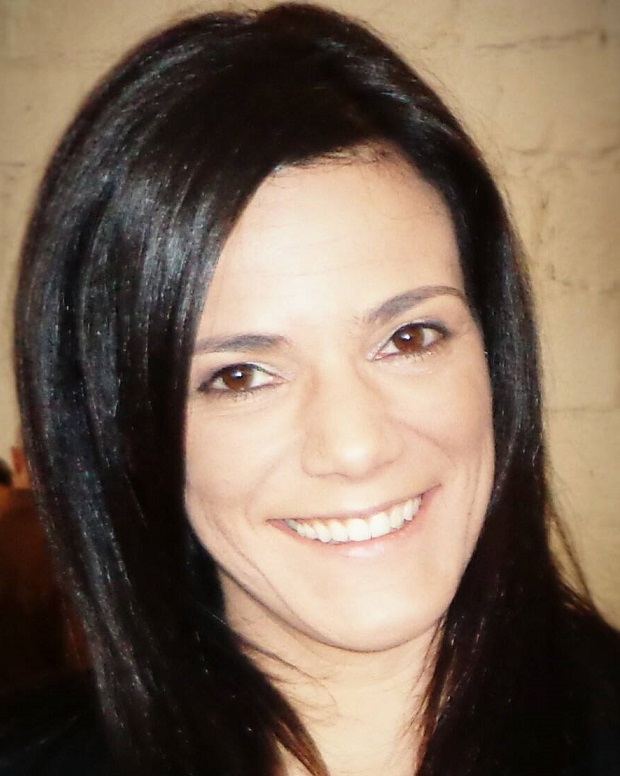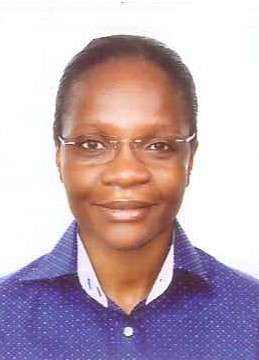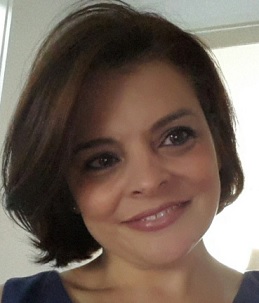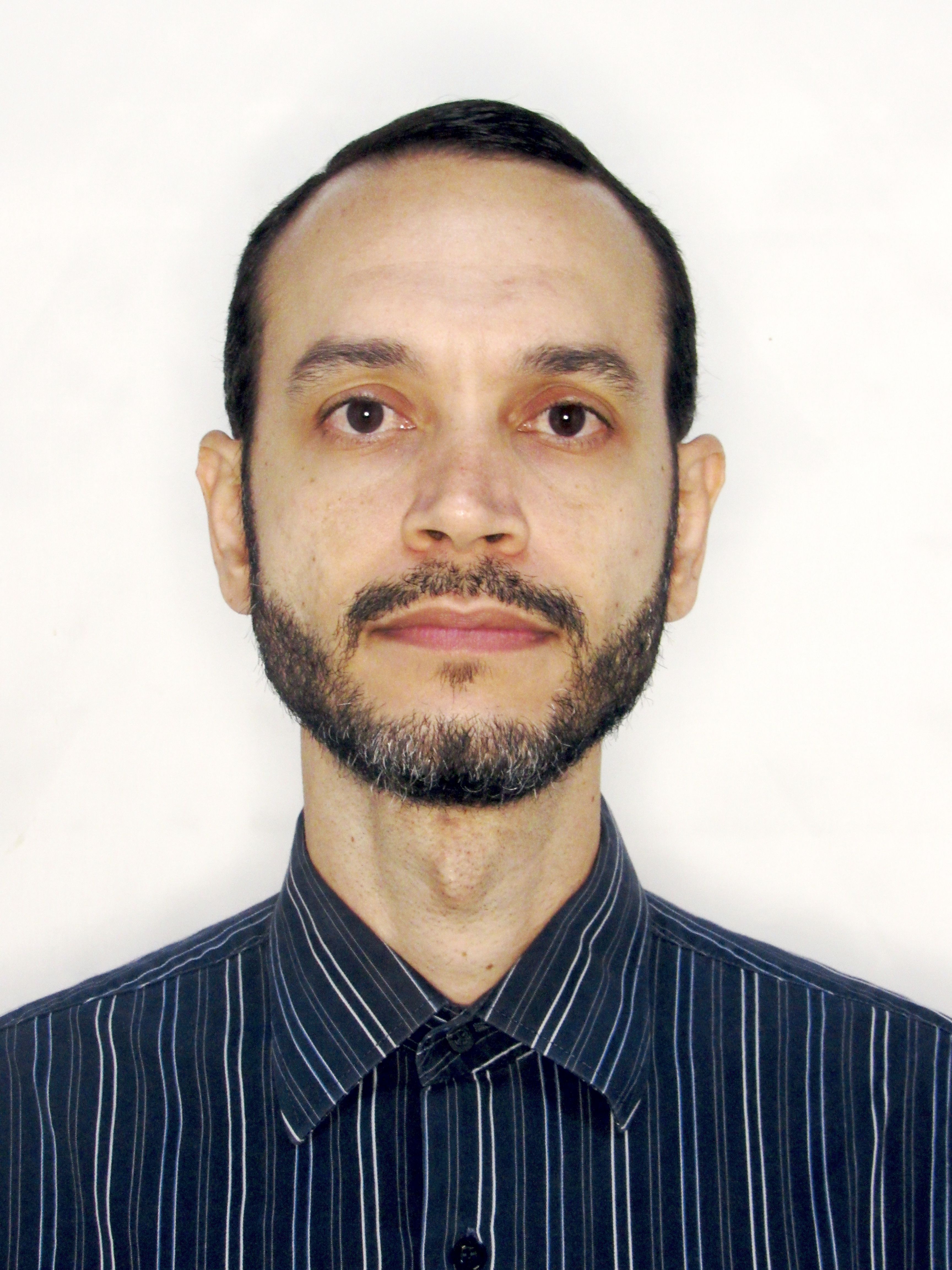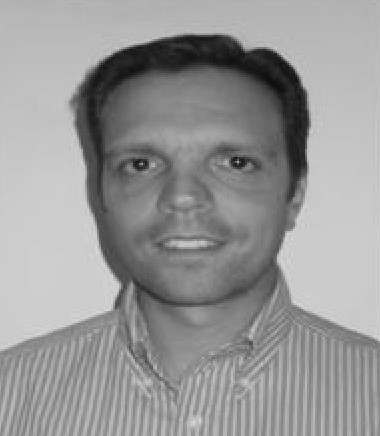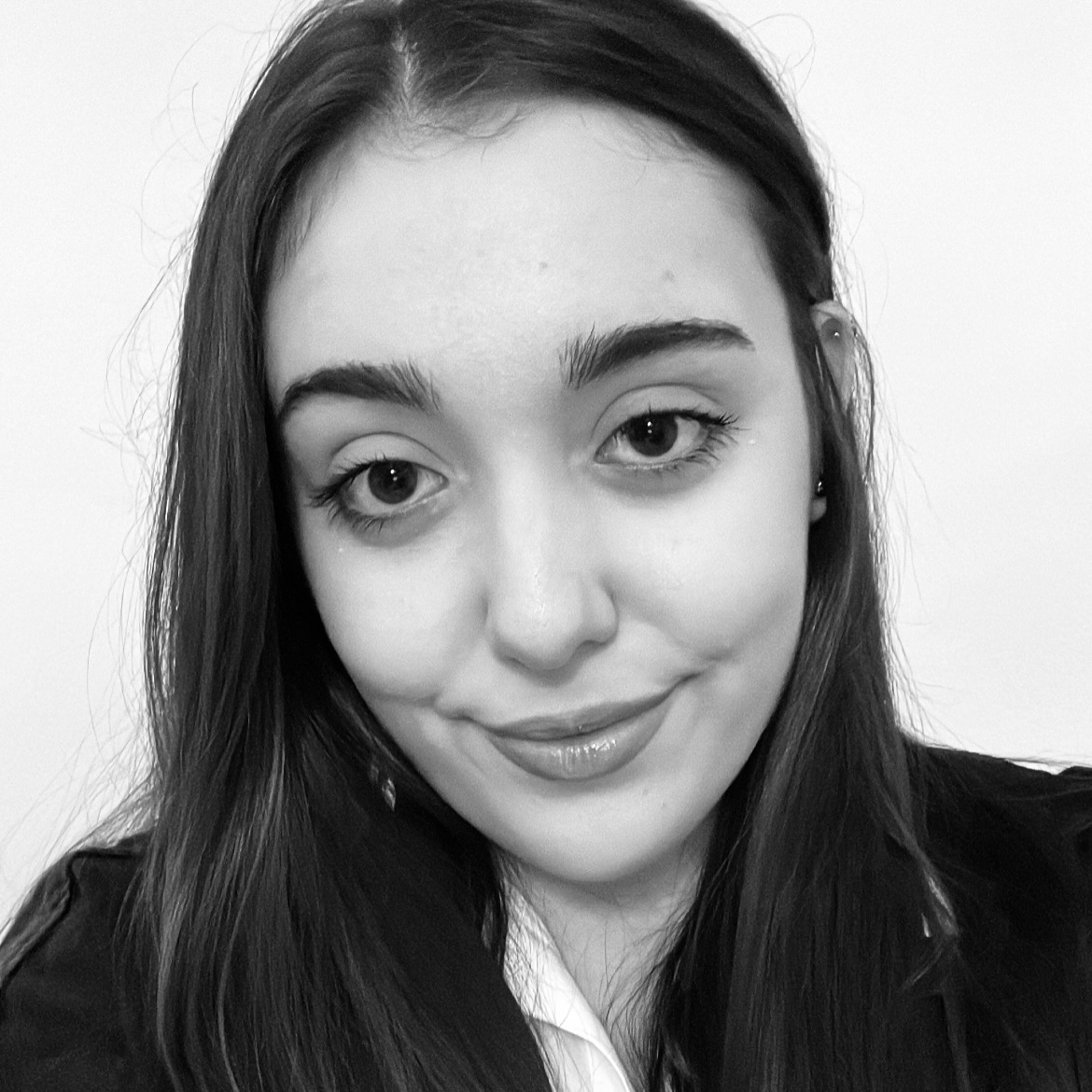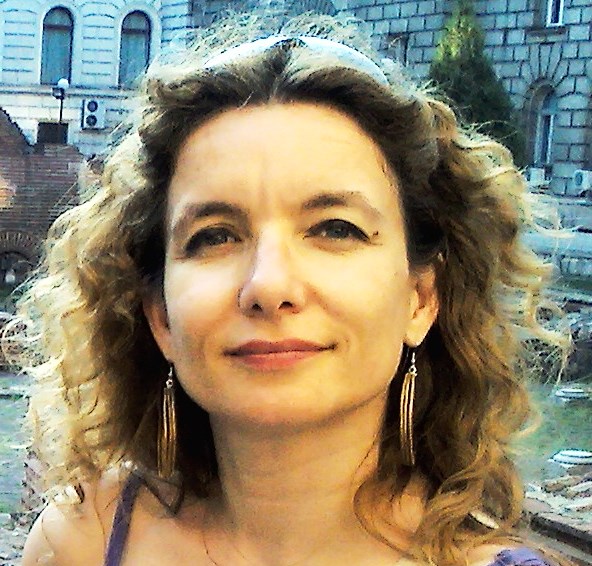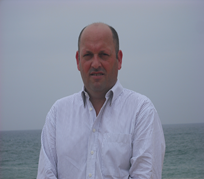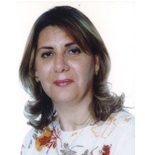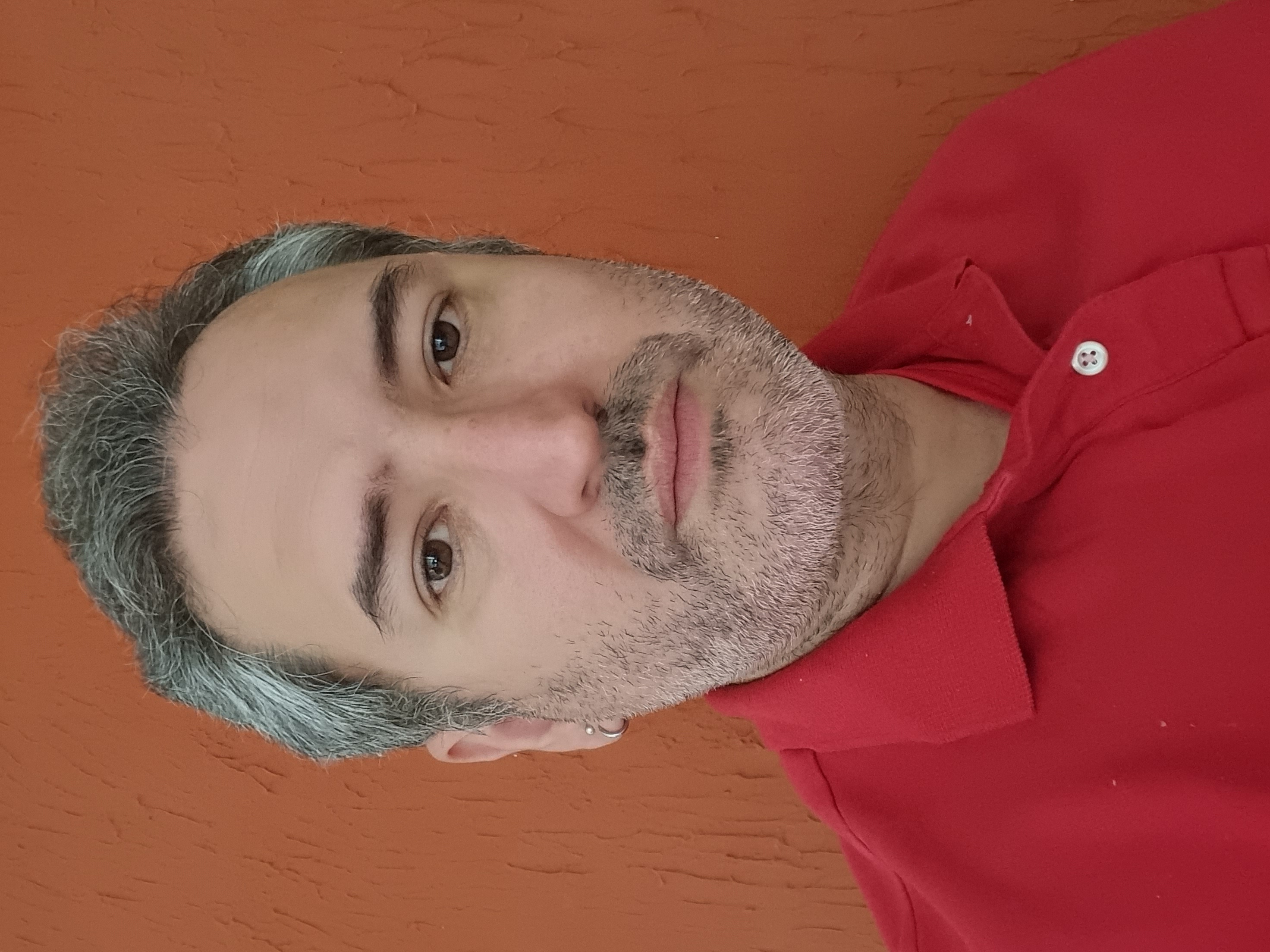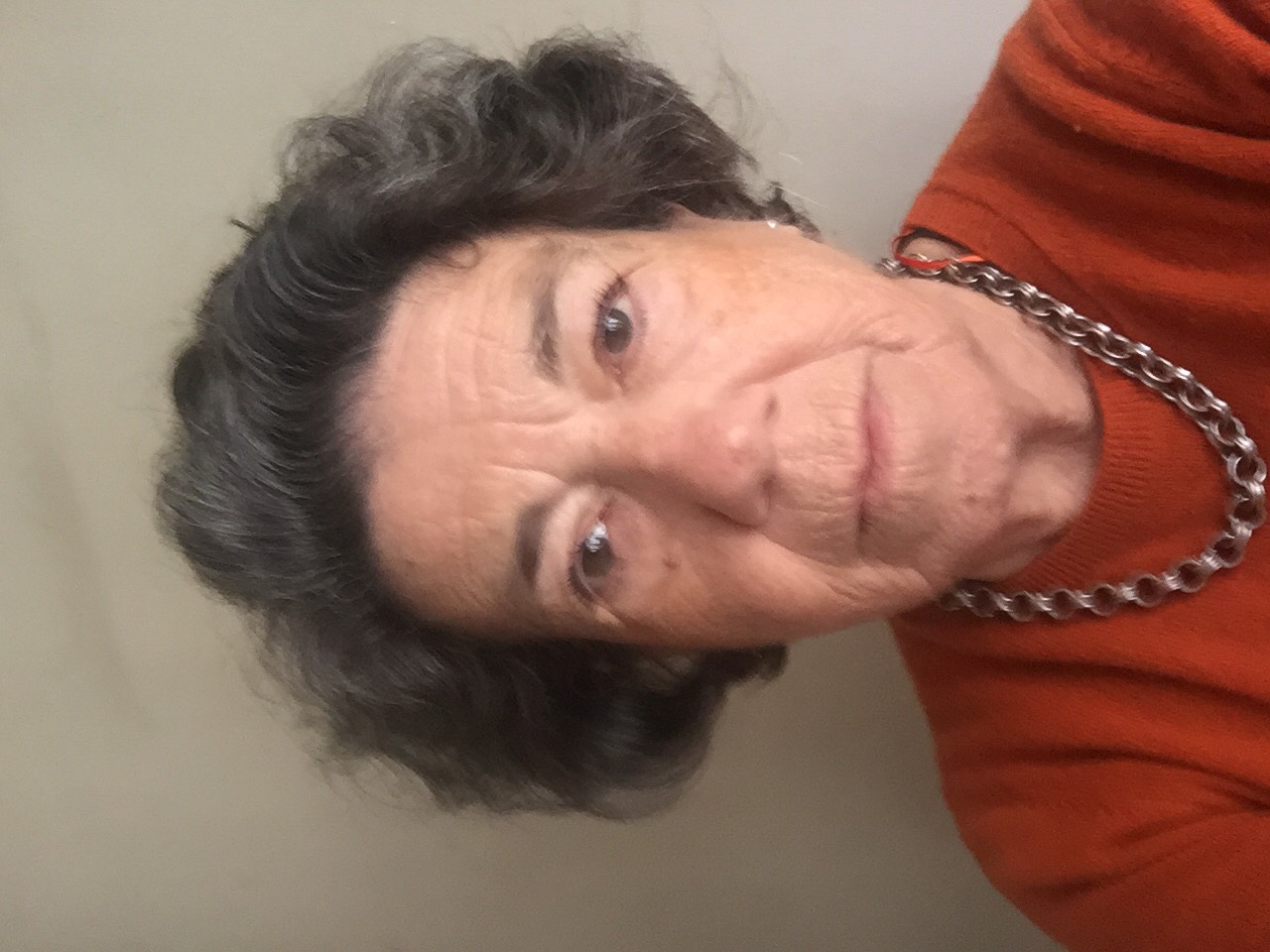Não Doutorados
Maggie Bertolacci is a master’s student in Linguistics at Faculté des lettres et des sciences humaines de l’Université Laval (Québec, Canada). At the moment, she is doing a research internship at Academia das Ciências de Lisboa and at Faculdade de Ciências Sociais e Humanas (NOVA FCSH) with the professors Ana Salgado and Rute Costa. For her master’s thesis (director: Bruno Courbon, Université Laval), she is studying the lexicon expressing slowness in French (Québec, France) and in Portuguese (Portugal, Brazil). Her approach is a corpus semantic study comparing the contexts of use (text theme, sentence construction, co-occurrence,…) of selected lexical unities linked to the notion of slowness (ex. lenteur-lentidão; ralentir-abrandar) in the two idioms (interlinguistic approach) and between the four cultural regions (intercultural approach). The main domains of her thesis are semantic, lexicology and lexicography.
Integrated Members
Has a PhD in Linguistics – specialization in Lexicology, Lexicography and Terminology – from NOVA University of Lisbon and in Information and Communication Sciences from Communauté Université Grenoble Alpes in 2019 (under a dual degree PhD programme). Has a Master’s in Information and Documentation Sciences from NOVA University of Lisbon. Since 2019, he is an integrated member of the LLT group of the Linguistics Centre of NOVA University of Lisbon, where he conducts research on multilingual terminology and ontologies in specialised domains.
Having a PhD in Computational Linguistics from the University of Lisbon since 2010, she collaborated and later integrated as a full member the Centre of Linguistics of the University of Lisbon from 1999 to 2015. She is member of the Lexicology, Lexicography and Terminology group of CLUNL since 2015. She participated in many projects, having coordinated 6, in Corpus Linguistics, Computational Lexical Semantics, Lexicography and Language Technologies, from which we highlight the Reference Corpus of Contemporary Portuguese, WordNet.PT, and the ongoing iRead4Skills. She teaches Computational Linguistics, Lexicology and Lexicography and Specialized Corpus courses of the graduation, MA and PhD programs at NOVA FCSH and is supervisor of several PhD and MA projects. She was an invited teacher at Polytechnic University of Macao and Pedagogic University of Maputo and is currently an invited teacher and Board Member of the PhD program on Linguistics and Digital Humanities at Palačký University, Czech Republic. She has also collaborated with Lionbridge as Computational Linguist in parsing and grammar checking development in several projects.
PhD in Linguistics (Lexicology, Lexicography and Terminology) from the School of Social Sciences and Humanities of NOVA University Lisbon, under the supervision of Professor Raquel Amaro and Professor Sara Mendes. She obtained a Bachelor’s degree in Modern Languages and Literature at the University of Turin (Italy) and a Master’s degree in Translation at the Faculty of Humanities of University of Lisbon (Portugal). At CLUNL she participated in HUGOD project – Humanities Going Digital – and she was a research fellow in EXPRIMI project – Preliminary corpus exploitation for inclusive task-based host language teaching – project
PhD in Lexicology, Lexicography and Terminology at School of Social Sciences and Humanities of NOVA University Lisbon, supervised by Professor Raquel Amaro, Professor William Martinez and Professor Teresa Lino. Master (in Phonetics and Phonology) and graduation in Linguistics at the Faculty of Letters, University of Lisbon. She is a member of the Portuguese team in the Project iRead4Skills – Intelligent Reading Improvement System for Fundamental and Transversal Skills Development [101094837]. Researcher (with scholarship) in several projects such as Corpus of Spontaneous Speech in European Portuguese (2006), Portuguese Language Portal (2006-2010), Vocabulary of the Portuguese Language (2009-2010), Project Portuguese Unisyn Lexicon (2010-2013), and European Portuguese-Standard Arabic Dictionary (2017-2020). Currently, she also collaborates at LAPE 4004 in the surveillance and evaluation of CAPLE exams.
Associate Professor with ‘Agregação’ in Linguistics – Lexicology, Lexicography, Terminology, at NOVA University Lisbon. She is also the chairperson of ISO/TC37/SC2 “Terminology workflow and language coding” and, between 2013 and 2016, she was convencer of the ISO/TC37/SC1 WG3 to the standards ISO 704 and 1087. Between 2000 and 2006, she was the chairperson of the European Association of Terminology (EAFT). At NOVA FCSH she teaches Terminology, Theories in Terminology, Terminology and Ontologies, among others. At present, she is a guest lecturer at Université Savoie Mont-Blanc, France. She was a guest lecturer at University of Luxembourg and Universidade Agostinho Neto, Luanda. She is guiding a dozen of PhD theses, some of them co-tutelary. In 2011, she was awarded with the Order “Chevalier de l’Ordre des Arts et des Lettres”.
Master and PhD in Linguistics (Lexicology – Lexicography – Terminology) at the School of Social Sciences and Humanities of the Universidade NOVA de Lisboa, graduated in Romance Philology at the Faculty of Letters of the University of Liège (Belgium). Researcher in the area of terminology and legal translation and teaching/learning French Foreign Language, particularly in its specialized aspect. French language lecturer at the universities of Bologna and Ferrara (Italy) (1995-1997), at the Faculty of Letters, University of Lisbon (1997-2001) and at the Faculty of Social and Human Sciences, New University of Lisbon (2001-2013). Invited assistant at the Superior School of Education, Polytechnic Institute of Santarém (2010-2013). She is currently invited assistant professor at the School of Social Sciences and Humanities of the Universidade NOVA de Lisboa, teaching didactics of French, translation and French language.
Susana Duarte Martins is an assistant professor at NOVA FCSH (Department of Portuguese Studies) with a PhD in Linguistics and an integrated researcher at the Linguistics Research Center of NOVA University of Lisbon. She taught Portuguese Language and Culture for Foreigners at the same university and has collaborated in the assessment and implementation of the CAPLE (Centre for Evaluation of Portuguese as a Foreign Language) exams. Currently, she is coordinating the project “TERMVEST – The Clothing Terminology: European Portuguese version”, in partnership with the Federal University of Rio de Janeiro. As a linguist project manager for an international company, she has worked with issues of Portuguese phonology and Text-To-Speech technologies. Susana performs research work in lexicology, lexicography, and terminology, foreign language and language for specific purposes teaching and learning. Besides linguistic proofreading, she has experience and training in creative writing, screenwriting, and journalism. She is a former Portuguese L1 and L2 teacher for the Portuguese Ministry of Education.
Holds a PhD in Linguistics – Lexicology, Lexicography and Terminology – from the NOVA University Lisbon, and in Sciences de l’Information et de la Communication by the Université Savoie Mont Blanc (cotutelle programme). She has collaborated with the Linguistics Center of NOVA University Lisbon as a Doctoral Fellow, within the Knowledge, Representation and Use (KRUse) programme, granted by the Fundação para a Ciência e Tecnologia (FCT) of the Ministry of Science, Technology and Higher Education (MCTS), and at the Laboratoire d’Informatique, Systèmes, Traitement de l’Information et de la Connaissance (USMB). She is currently a researcher within the Lexicology, Lexicography and Terminology (LLT) group. She is also a member of IPQ’s CT 221 Terminologia, Língua e Linguagens and of ISO TC 37, Language and Terminology. Her research interests focus on terminology, ontologies, lexicography, and corpus linguistics.
Collaborators
Hélder Pande Alexandre, Assistant professor from School of Social Sciences of University Agostinho Neto, in Luanda, is a PhD student in Linguistics, specialty Lexicology, Lexicography and Terminology, from NOVA FCSH. He holds a master’s degree in Terminology and Special Information Management (2015) and a postgraduate degree in Information Management and Curation (2023), both from NOVA FCSH, as well as a degree in Education Sciences, Portuguese Teaching option, from Higher Institute of Education Sciences in Luanda (2013). He worked for ten years as a Portuguese teacher in Secondary Education, in Luanda.
Master in Discoveries and Modern History in NOVA School of Social Sciences and Humanities, completed her degree in Art History in the same University in 2021. Within the Art History degree has concluded a curricular internship in the investigation project VESTE – Vestir a corte: Traje, género e identidade(s) in CHAM (Humanities Center) in which she kept working upon the end of the internship. She was a grant holder in the project TERMVEST – The Clothing Terminology: European Portuguese version in CLUNL (Linguistics Research Center of NOVA University Lisbon).
Maggie Bertolacci is a master’s student in Linguistics at Faculté des lettres et des sciences humaines de l’Université Laval (Québec, Canada). At the moment, she is doing a research internship at Academia das Ciências de Lisboa and at Faculdade de Ciências Sociais e Humanas (NOVA FCSH) with the professors Ana Salgado and Rute Costa. For her master’s thesis (director: Bruno Courbon, Université Laval), she is studying the lexicon expressing slowness in French (Québec, France) and in Portuguese (Portugal, Brazil). Her approach is a corpus semantic study comparing the contexts of use (text theme, sentence construction, co-occurrence,…) of selected lexical unities linked to the notion of slowness (ex. lenteur-lentidão; ralentir-abrandar) in the two idioms (interlinguistic approach) and between the four cultural regions (intercultural approach). The main domains of her thesis are semantic, lexicology and lexicography.
She has a degree in Translation and a master’s degree in Translation with a specialization in English from NOVA FCSH. She has a specialization course in Translation Practices and Technologies from the School of Arts and Humanities of the University of Lisbon. She is currently studying for a master’s degree in Language Sciences, specialization area in Terminology and Specialty Information Management. She is a researcher on the project Horizon Europa: HetERogeneous sEmantic Data integratIon for the guT-bRain interplaY [Grant agreement ID: 101137074].
BA in Translation in NOVA FCSH and Postgraduate in Globalisation, Diplomacy and Security in NOVA FCSH in partnership with IUM. MA in Language Science, specialization area in Terminology and Special Information Management. Currently, he is a master student in Political Science and International Relations, and a PhD student in Linguistics, specializing in Lexicology, Lexicography, and Terminology in NOVA FCSH. His doctoral thesis [UI/BD/154833/2023] focuses on terminological issues in the Military Sciences. He was a research fellow in the MORDIGITAL project (PTDC/LLT-LIN/6841/2020).
Sara Carvalho is an Assistant Professor at the Department of Languages and Cultures, University of Aveiro, where she teaches courses in the fields of terminology, specialised translation, English and German linguistics, and technical communication.
She holds a PhD in Linguistics, with a specialisation in Lexicology, Lexicography and Terminology, from the Faculty of Social Sciences and Humanities – Universidade NOVA de Lisboa (NOVA FCSH). Her thesis, entitled “A terminological approach to knowledge organisation within the scope of endometriosis: the EndoTerm project”, was developed within the scope of a co-tutelle agreement between the Universidade NOVA de Lisboa and the Communauté Université Grenoble Alpes. She holds an MA in German Studies – specialisation in German Linguistics – from the University of Aveiro (UA), and graduated in Modern Languages and Literature (English and German Studies) at the Faculty of Arts and Humanities – University of Coimbra.
She is a researcher at the Languages, Literatures and Cultures Research Centre of the University of Aveiro (CLLC-UA) (Full member) and at the Linguistics Research Centre of the Universidade NOVA de Lisboa (NOVA CLUNL) (Collaborator). In addition, she is a member of the ISO/TC 37 “Language and terminology” and of the Portuguese mirror committee “CT 221 – Terminologia, Língua e Linguagens” at IPQ. She also integrates the COST Action 18209 – European network for Web-centred linguistic data science, where she currently leads Working Group 4 (Use cases and applications).
Research areas:
terminology and ontologies, medical terminology, lexicography, language teaching for specific purposes, technical communication
More information available at: https://sarampcarvalho.github.io/
Cristina Clemente is a PhD student in Language Teaching – Multilinguism and Education for a Global Citizenship, specialization area French as a Foreign Language, at NOVA FCSH/Universidade Aberta. She teaches French at NOVA FCSH and ILNOVA. She has a Degree in Modern Languages and Literatures by School of Arts and Humanities of ULisboa and a Master in Foreign Language Teaching by NOVA FCSH. She has been teaching French as a foreign language in several institutions. She also does linguistic proofreading for companies and publishers. Her research interests include didactics of foreign language, teaching French as a foreign language, the ICT in education and the implementation of the flipped classroom in higher education.
Assistant Professor at Lisbon Accounting and Business School (ISCAL), where she is the head of the department of Research Methodologies, and researcher at Linguistics Research Centre of the Universidade NOVA de Lisboa (CLUNL). She teaches English for Specific Purposes, Communication Skills, Portuguese as a Foreign Language, and Research Methodologies. She holds a PhD in Linguistics (Lexicology, Lexicography and Terminology) from the School of Social Sciences and Humanities of the Universidade NOVA de Lisboa (NOVA FCSH), and a Master’s degree in Romance Linguistics from the School of Arts and Humanities of the University of Lisbon (FLUL), where she graduated in Languages and Literatures (Portuguese and English). Her main research interests are: terminology, translation, lexicography, languages for specific purposes, multilingualism and multiculturalism, and the economics of language.
PhD in “Translation and Terminology” (NOVA University Lisbon and University of Aveiro), she developed a thesis on the presence and translation of terms in literary texts. She has a degree in Modern Languages and Literatures (1985) from NOVA FCSH; was a teacher of Portuguese Language and Culture at the Spanish Institute of Lisbon (1985-1989); Researcher at the Institute of Theoretical and Computational Linguistics (1990-1995); Copywriter at the Leo Burnett Agency (1995-2000), scriptwriter and literary translator (2000-…). She is currently a reader at the Camões Institute at the University of Algiers 2 (Institut de Traduction).
Toivo Haipinge holds a Master’s degree in Terminology and Specialty Information Management (NOVA FCSH, 2017) and a degree in Education Sciences, option History Teaching, from the Higher Institute of Education Sciences of Lubango (ISCED-Huíla, 2012). He was a teacher of History and Methodology of History Teaching in Secondary Education, in Cunene, for over ten years, and is currently a teacher of Portuguese at the Teacher Training School of Ondjiva “Dr. António Agostinho Neto”, in Cunene, with the category of teacher of primary and secondary education of the 3rd grade. He is currently a doctoral student at CLUNL, under the guidance of Professor Raquel Amaro, developing a thesis in the specialty area of Lexicology, Lexicography and Terminology.
PhD student in Language Teaching, specialising in Portuguese as a Foreign Language, at Universidade Aberta / NOVA FCSH.
Master’s in Linguistics, in the area of Lexicology, Lexicography and Terminology, from NOVA FCSH. She has a degree in Linguistics, with a major in Educational Training in Portuguese as a Mother Tongue and Non-Mother Tongue, from the same Faculty. She has been teaching Portuguese as a Foreign Language at NOVA FCSH since 1999. Representative of LAPE 4004 in the assessment and application of CAPLE exams. Collaborated in research projects with the Lexicology, Lexicography and Terminology Group, CLUNL. She collaborates as a CLUNL researcher on the ECML project CLIL LOTE in the Pluriliteracies group, using Italian and Portuguese to develop CLIL materials. Portuguese language teacher as first, second and foreigner language at Middle and High School.
PhD student in Linguistics, specialisation area in Lexicology, Lexicography and Terminology, at the NOVA School of Social Sciences and Humanities in Lisbon, and in Portuguese, Brazilian and Lusophone African Studies at the University of Paris 8 – Vincennes – Saint-Denis (E.A.31) (co-tutored). He holds a master’s degree in Terminology and Management of Specialised Information from the NOVA School of Social Sciences and Humanities, and a postgraduate diploma in School Administration and Management from the Polytechnic Institute of Setúbal. He has worked as a secondary school teacher in Angola since 2004. He worked as a general supervisor, co-author and linguistic proofreader on the project to correct and update primary school textbooks in Angola, developed by the Ministry of Education in its 1st Edition (2020-2021) and 2nd Edition (2022-2023). He is an author, carries out linguistic revision work for publishers and institutions, a member of the team organising the “Semana da Língua Portuguesa” and also member of the CPLP Brochures Project team.
PhD student in Linguistics at NOVA FCSH, he develops a thesis in the specialty of Lexicology, Lexicography and Terminology, under the supervision of Professor Rute Costa. He holds a master’s degree in Lusophone Studies from the Faculty of Arts and Letters of the University of Beira Interior (2018). Degree in Language and Literatures in Portuguese from the Faculty of Arts and Humanities (now the Faculty of Humanities) of the Agostinho Neto University (2015). He is a lecturer (Trainee Assistant) at the Department of Language and Literatures in Portuguese Language – Faculty of Humanities of the Agostinho Neto University.
Conceição Lima is currently pursuing a doctorate in Linguistics, in the area of Lexicology, Lexicography and Terminology at NOVA FCSH. Her thesis, supervised by Prof. Raquel Amaro and Prof. Amália Mendes, aims to study semantic neology resulting from the metaphoric use of linguistic units in the context of natural discourse. The identification of metaphors is therefore the first step, in order to delimit metaphoric uses that give rise to new meanings in a linguistic unit.
Between 2005 and 2011, she taught at the Catholic University of Angola (School of Humanities), lecturing Translation Theory on the course of Languages, Literatures and Administration.
She has a Master’s degree in English Studies (specializing in Translation Studies) from the Faculty of Letters, University of Lisbon, and a Bachelor’s in Germanic Philology from the University of Leipzig, Germany.
Postgraduate in Portuguese Language Teaching – ISCED-Luanda. MSc in Terminology and Information of the Specialty Management by School of Social Sciences and Humanities of the Universidade NOVA de Lisboa. PhD student in the specialty of Lexicology, Lexicography and Terminology – School of Social Sciences and Humanities of the Universidade NOVA de Lisboa. Portuguese Language teacher and Dean of the Faculty of Human Sciences at Catholic University of Angola. Member of the Scientific Council of the Catholic University of Angola.
He has a degree in English Teaching from Eduardo Mondlane University, a Master’s degree in Conference Interpreting, and a Post-graduate degree in Translation from the Pedagogical University of Maputo. Interpreter, translator, English teacher and trainer of interpreters at the Pedagogical University of Maputo and at the Pan-African University based in Cameroon. He is currently attending a PhD course in Translation and Terminology at the NOVA University Lisbon.
A Linguistics PhD student, in the branch of Lexicology, Lexicography and Terminology. He was a research fellow in the iRead4Skills research project – Intelligent Reading Improvement System for Fundamental and Transversal Skills Development [101094837], in which he carried out his master’s dissertation, developing an infrastructure of textual complexity gauging for low-literacy adults. Besides the interest in the topic of Text Complexity, he conducts his PhD research in the realm of Computational Linguistics, namely in modelling figurative language.
Ana Mouro is a guest lecturer at the University of Aveiro’s Águeda School of Technology and Management, specializing in teaching English and German for specific purposes. She is currently pursuing a PhD in Translation and Terminology at NOVA FCSH University. She holds a degree in Teaching English and German, an MA in German Studies, and an MA in Specialized Translation from the University of Aveiro’s Department of Languages. Additionally, she completed an Advanced Training Course in the Doctoral Programme in Cultural Studies, with a specialization in Cultural Hermeneutics, at the same university. During this advanced training, Ana Mouro conducted an extensive study on the portrayal of Germany in the Portuguese press during the 2008 financial crisis. This research sparked her interest in corpus analysis, a skill that is now central to her PhD research in Terminology.
PhD student in Didactics of Languages, with specialization in French, Foreign Language, at NOVA FCSH / Universidade Aberta. Master in Estudos Românicos – Textos e Contextos at NOVA FCSH (2006-2009) and graduated in the Educational Branch in Modern Languages and Literatures Portuguese and French studies by the Faculdade de Letras of the University of Lisbon (1996 -2001). Visiting Professor at the Polytechnic Institute of Tomar (2011-2015) and at the Abrantes School of Technology (2005-2007). French teacher at Alliance Française de Santarém (2012-2014). Currently French and Portuguese teacher at the Professional School of Vale do Tejo in Santarém.
Fineza Pinto Marimba holds a Bachelor’s degree in Education Science, Portuguese Language Teaching, from Agostinho Neto University. Holds a Master’s degree in Language Science from the New University of Lisbon, Faculty of Social Social and Humanities. Her Master’s thesis dissertation focused on Portuguese Second Language Acquisition (Angolan Portuguese), which granted her the Excellence and Merit Award 2015/2016 – Best Masters. She is now a Ph.D. student of Linguistics, specializing in Lexicology, Lexicography, and Terminology, and developing her studies in lexical innovation in Angolan Portuguese. Professionally, she is a Portuguese teacher in Secondary Education since 2011 in Angola. In addition to teaching, she held responsibilities as Chief of the Department of Pre-school and Primary Education of the National Institute of Research and Development of Education (INIDE in Portuguese) and, more recently, she acted as a consultant for the Ombudsman of Angola.
Graduated in Languages, Literatures, and Cultures with specialization in Portuguese and English. Master in “Ensino de Português e Língua Estrangeira no 3º Ciclo do Ensino Básico e Ensino Secundário”, with specialization in English. Has presented a poster under the project Humanities Going Digital (HUGOD) [2020-2-CZ01-KA226-HE-094363], untitled “Perceiving societal and moral trends related to sex abuse in the press through linguistic data analysis”. She was a member of the Portuguese team in the project iRead4Skills – Intelligent Reading Improvement System for Fundamental and Transversal Skills Development [101094837]. She is currently a research fellow at the Lisbon Academy of Sciences as part of the Portuguese Language Dictionary project.
PhD candidate in Language Didactics – Multilingualism and Education for Citizenship, focusing on the teaching of French as a Foreign Language, in a partnership between Universidade Aberta and Universidade Nova de Lisboa, under the supervision of Christina Dechamps, a member of CLUNL. His dissertation, titled “Développer l’oralité en français langue étrangère par le biais de l’humour: Expériences de recherche-action auprès d’apprenants de français au Cap-Vert“, investigates strategies to improve the oral proficiency of Cape Verdean students of French through humor. He is an adjunct professor at the University of Cape Verde and a tenured teacher with the Ministry of Education of Cape Verde. He holds a Master’s degree in Language Sciences from Université Via Domitia, in Perpignan, France, and a Bachelor’s degree in French Studies from the Higher Institute of Education in Cape Verde.
Ana Salgado received the PhD in Translation and Terminology by Universidade NOVA de Lisboa in 2022, and graduated in Modern Languages and Literature – Portuguese Studies (scientific branch) by Faculdade de Letras da Universidade do Porto in 2001. Collaborator at the Centro de Linguística da Universidade Nova de Lisboa (CLUNL). Coordinator of the PORTULAN CLARIN consortium (Portugal 2030), via the Lisbon Academy of Sciences, in partnership with the a Faculdade de Ciências and the Faculdade de Letras da Universidade de Lisboa. Peviously she was a research fellow in the framework of the ELEXIS infrastructure for two years. She maintains activity as lexicographer being coordinator of the Vocabulário Ortográfico da Língua Portuguesa and of the Dicionário da Língua Portuguesa, and is one of the editors responsible for the publication Thesaurus de Ciências da Terra of the Academia das Ciências de Lisboa. She is also the project leader in revising the standard ISO 1951:2007 and has made significant contributions to the TEI Lex-0 – a baseline encoding for lexicographic data. Her main research interests include lexicography, terminology, data modelling, TEI, digital humanities and text editing. Ana Salgado is member of CT 221 – Terminologia, Língua e Linguagens and CT 025 – Quantities and Units at Instituto Português da Qualidade and correspondent member of the Academia das Ciências de Lisboa since 2015, having been elected a full member in 2022. President of the Institute of Lexicology and Lexicography of the Portuguese Language of the Lisbon Academy of Sciences since 2023. Currently a freelancer.
Born in Luanda on April 25, 1975. She is public worker of the Secretariat of the Angolan Council Ministers for more than 10 years, currently working as a Senior Assistant in the Human Resources Office and member of Linguistics Research Centre of NOVA University Lisbon.
PhD student in Linguistics – specialization in Lexicology, Lexicography and Terminology, Master in Sociology of Crime Violence and Internal Security, Postgraduate in Human Resources Management and Licentiate in Sociology.
She has a PhD and a Master’s in Linguistics from the Faculty of Social and Human Sciences of NOVA University Lisbon (NOVA FCSH). She has a postgraduate qualification in Health Literacy from the University Institute of Psychological, Social and Life Sciences – ISPA. She is a member of the LLT group (Lexicology, Lexicography and Terminology) at the Linguistics Centre of the NOVA University Lisbon (NOVA CLUNL). She has collaborated on various projects, including designing and developing methodologies in Terminology and Lexicography, focusing on specialised communication and citizen literacy, particularly in the legal and health areas. She has been a guest lecturer at the FCSH on several occasions, teaching subjects in both the bachelor’s and master’s programs (Terminology and Specialty Information Management 2008/2017). Between 2020 and 2024 (Feb.) she was a member of VOH.CoLAB – Collaborative Laboratory on Value for Health, where she was responsible for Health Literacy. She is currently a visiting scientist (with scholarship status) at the International Portuguese Language Institute – IILP.
Engineer with a Master’s degree in Industrial Engineering (UFBA) and a Bachelor’s degree in Electrical and Computer Engineering (ÁREA1). He has experience in research, development, and innovation (R&D), having worked on Erasmus+ and FCT-funded projects involving intelligent systems, IoT, and databases. He also holds a degree in Philosophy (UCB-Brazil) and a postgraduate certificate in Specialized Translation (ISCAP-IPP, Portugal). He is currently pursuing a Master’s in Language Sciences (NOVA FCSH), specializing in Terminology and Computational Lexicography. He is a researcher in the Horizon Europe project: HetERogeneous sEmantic Data integratIon for the guT-bRain interplaY [Grant Agreement ID: 101137074].
PhD in Didactics of Languages, with specialization in French Foreign Language, at NOVA University Lisbon / Universidade Aberta, he holds a master’s degree in teaching from Portuguese and Spanish obtained in the University of Lisbon (FLUL). He is professor of Spanish Language at Lusíada University of Lisbon, French lecturer at NOVA FCSH and High School Portuguese teacher. He develops research in the area of foreign language didactics, linguistics, vocabulary teaching and third language acquisition.
Federica Vezzani is assistant professor – RTDa – at the Department of Linguistics and Literary Studies of the University of Padua. Her main research interests are: Terminology, Terminography, Specialized Translation and Technical Communication. In particular, she focuses on the management of multilingual terminology according to ISO standard for terminology, and she has developed the FAIR terminology paradigm for the optimal organization of findable, accessible, interoperable and reusable terminological data. She recently published the book “Terminologie numérique: conception, représentation et gestion” by Peter Lang publisher in 2022.
PhD student in Linguistics focusing on Lexicology, Lexicography and Terminology, at NOVA FCSH, under the supervision of Professor Raquel Amaro and Professor Matilde Gonçalves. She holds a Master’s degree in Language Sciences with a specialization in Terminology and Specialty Information Management from the same institution. She was a research fellow in the EXPRIMI (UIDB/03213/2020) in which she developed her master’s thesis entitled “Text mining for the detection of linguistic traits of inclusiveness: analysis of texts used in the reception and integration of migrant people”.
Tibor Vocásek is a PhD Student at the Institute of Sociological Studies, Charles University Prague. He investigates topics on the edge of sociolinguistics, critical (digital) sociology, and media studies. His PhD project, funded by GAUK, is titled “Future According to Whom? Corpus-assisted Critical Analysis of the Imaginaries of Digital Economy in Czech Media.” He graduated with a master’s degree in political science, plus holds a bachelor’s in media studies and journalism from Masaryk University in Brno. He has also been organising workshops in media literacy for several local organisations.
External Collaborators - PhD
PhD in Terminology. Lecturer at the Polytechnic Higher Education since 1995 and at ISCAP-Polytechnic of Porto since 1999. International Coordinator at ISCAP since 2004. Researcher at CLUNL (Universidade NOVA de Lisboa) and at CEOS.PP (ISCAP-P. PORTO). Member of the Editorial Review Board of “Current Trends in Translation Teaching and Learning”. President of APCOMTEC – Portuguese Association for Technical Communication and of TCeurope – Federation of Societies of Technical Communication in Europe.
Associate Professor at Faculdade de Ciências Humanas e Sociais da Universidade do Algarve and researcher at Linguistics Research Centre of the Universidade NOVA de Lisboa. President of the European Language Council/Conseil Européen pour les Langues. Main areas of research: lexicology, terminology, language policies and language learning. Member of projects in the following areas: multlingual terminology, multilingualism, intercultural communication and linguistic diversity.
Karima Fangour Robalo holds a Master and PhD degree in Linguistics in Lexicology, Lexicography and Terminology, from the School of Social Sciences and Humanities of NOVA University Lisbon (NOVA FCSH), having defended a thesis on “Vulgarisation Terminologique dans le Domaine des Énergies Renouvables, Portuguese-Arabic”. She also completed the postgraduate course in translation (French) in NOVA FCSH. She graduated in French Language and Literature, in the Linguistic area, at the Faculty of Letters and Human Sciences, at Sidi Mohamed Ben Abdellah University, in Fez (Morocco). Since 2017, she has been an integrated member of the LLT group of the Linguistics Research Centre of NOVA University Lisbon, where she develops research in the area of Multilingual Terminology, Lexicology, Lexicography, Lexical and Semantic Relations, as well as Translation in Portuguese, Arabic and French. She used to be a French Language Teacher for the Secondary School in Fez (Morocco).
Michell Gadelha Moutinho has an undergraduate degree in modern language teaching (Portuguese and English) and a Master’s degree from the Federal University of Pará – UFPA (Brazil). He works as a German teacher at the Escola de Aplicação (UFPA). He has experience in the following fields: modern language learning and teaching (focus on reading), Curriculum-based measurement, complexity and additional language learning, oral reading fluency, language learning and teaching reading.
Researcher in the Lexicology, Lexicography and Terminology group (CLUNL). PhD in Education – Didactology of Languages-Cultures. Nuclear research areas: Lexicography, Lexiculturology, Languages-Cultures Education, Didactology of Languages-Cultures. Has been publishing research articles in national and international scientific journals and supervising masters and PhD thesis within the scope of Languages-Cultures Education.
External Collaborators - no PhD
Degree in Romance Philology, Faculdade de Letras, Universidade de Lisboa; D.E.A. in Didactologie des Langues-Cultures, Université Sorbonne Nouvelle – Paris 3. Retired secondary school teacher, she also taught at the Lycée International de Saint-Germain-en-Laye and was reader of Portuguese at the Université d’Avignon. She was a visiting assistant at the Department of Linguistics of the School of Social Sciences and Humanities, NOVA University Lisbon, where she taught Didactics of Portuguese as a Mother Tongue and as a Foreign Language/Second Language and other subjects. She has participated in several European projects in the area of languages and language-culture teacher training. She was editor of the journal “Referências-Ressources” of the Portuguese Association of French Teachers. She has been a collaborator at Linguistics Research Centre of NOVA University Lisbon.
Menu
- Projects
- Ongoing projects
- SPELL2 – Synchronizing Perceptual and Lexical Abilities in Second Language Acquisition
- MultiPoD – Multilingual and Multicultural Spaces for Political Deliberation
- HEREDITARY – HetERogeneous sEmantic Data Integration for guT-brAin interplay
- TCTC – Terminologias Científicas e Técnicas Comuns para a CPLP
- CHAMUÇA – Portuguese and South Asian Lexicon Archive
- e-Term ANCV – Recurso terminológico jurídico-parlamentar digital Assembleia Nacional de Cabo Verde
- DiTo – Didática do Texto
- REDGRAM – Digital Resources for Education – Grammatical Pathways
- iRead4Skills – Intelligent Reading Improvement System for Fundamental and Transversal Skills Development
- Heritage Languages go to School: The interplay of (extra)linguistic factors in successful language development
- Investigating the impact of implicit and explicit instruction on phonological acquisition in a second language
- LAUA – Language Attrition and Ultimate Attainment
- CORRELATE – Corpora and Lexical and Terminological Resources
- ANACOREX – Anafora y expresiones referenciales en el bilinguismo: triangulando enfoques de corpus y experimentales
- CoRaLHis – Comparing Romance Languages through History: building a multilingual parallel diachronic corpus (13th-18th C.)
- Language and literacy at school – the contribution of metasyntactic abilities to reading comprehension development
- COVID-19 Collaborative Glossary
- TERMVEST – The Clothing Terminology: European Portuguese version
- Digital Edition of the “Vocabulário Ortográfico da Língua Portuguesa” (VOLP-1940)
- PIPALE – Preventive Intervention Project for Learning to Read and Write
- POR Nível – Design and validation of a placement test to PFL
- Cultural Heritage Lexicon
- Concluded projects
- EPISTRAN – Epistemic Translation: Towards an Ecology of Knowledges
- NObarriers2Health: Reducing language and cultural barriers through machine translation literacy for inclusive multilingual health communication
- Active Citizenship Through Dialogue in Virtual teacher communities
- G&T.Comenta
- EXPRIMI
- MorDigital – Digitisation of Diccionario da Lingua Portugueza by António de Morais Silva
- ProPerL2 – Production and Perception in L2 speech learning
- Western Sephardic Diaspora Roadmap
- ELEXIS – European Lexicographic Infrastructure
- Humanities Going Digital (HUGOD)
- LL2DS – Linking Linguistics to Data Science
- QuILL – Quality in Language Learning
- Corpus Linguístico & Avatar para a Língua Gestual Portuguesa
- Monitor Corpora. PressCoronaVírus
- Caring Communication: gene therapy in the context of hemophilia
- Com@Rehab – Communication for interactive rehabilitation in virtual reality
- Read4Succeed: Improving migrant, refugee and from deprived neighbourhood children reading skills through an Animal Assisted Reading program
- Project GiroFLE
- ANACOR: A corpus-based approach to anaphora resolution in second language acquisition: beyond the interfaces
- OrthoDef
- European Portuguese-Standard Arab Dictionary
- MOCOLANG-O – MOdélisation COnceptuelle des troubles (du LANGage et de la communication) en Orthophonie
- Romance clitics in diachrony. An integrated approach
- Portuguese Literature Corpus for Distant Reading
- ALPROF – Automatic Assessment of Language Proficiency for Migrant Integration
- CLARIN CLUNL
- Utopia, Food and the Future
- Development of syntactic structures in Portuguese and French monolingual and bilingual acquisition
- The Case of Grammatical Relations
- BlackBox – a Collaborative Platform to Document Performance Composition: from conceptual structures in the backstage to customizable visualizations in the front-end
- Promotion of scientific literacy
- PerGRam – Percursos para o ensino da gramática nos primeiros anos de escolaridade
- Knowledge Organisation Proposal within the scope of infertility: the role of Terminology
- Subordination in Medieval Portuguese
- Crosslinguistic and Crosspopulation approaches to the Acquisition of Dependencies
- Syntactic and lexical factors in processing complexity
- SIERA – Integrating Sina Institute into the European Research Area
- Syntactic Dependencies from 3 to 10
- Events and subevents in Capeverdean
- TKB – Transmedia Knowledge Base for Contemporary Dance
- Research network projects
- ELEXIS Association
- PhraConRep – A Multilingual Repository of Phraseme Constructions in Central and Eastern European Languages
- Y-JustLang – Justice to youth language needs
- ENEOLI – European Network On Lexical Innovation
- Consortium Huma-Num ARIANE
- GRAFE’Maire
- UniDive – Universality, diversity and idiosyncrasy in language technology
- Metalex – International Metalexicography Network
- @ Cientista Regressa à Escola
- CLIL in Languages Other Than English
- NexusLinguarum – European network for Web-centred linguistic data science
- Distant Reading for European Literary History
- HL2C – Heritage Language Consortium
- KEYSTONE – Semantic Keyword-Based Search on Structures Data Sources
- ARLE – International Association for Research in L1 Education
- ENeL – European Network of e-Lexicography
- GraMaLL – Grasping Meaning Across Languages and Learners
- Language Impairment in a Multilingual Society: Linguistic Patterns and the Road to Assessment
- GIRTraduvino – Grupo de Investigación Reconocido sobre la Lengua de la Vid Y el Vino y su Traducción
- Value for Health CoLAB
- Infrastructures
- Services provision
 PT
PT

